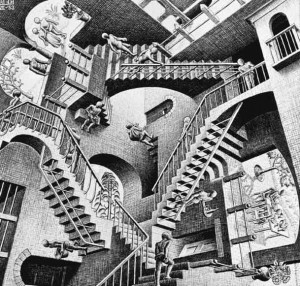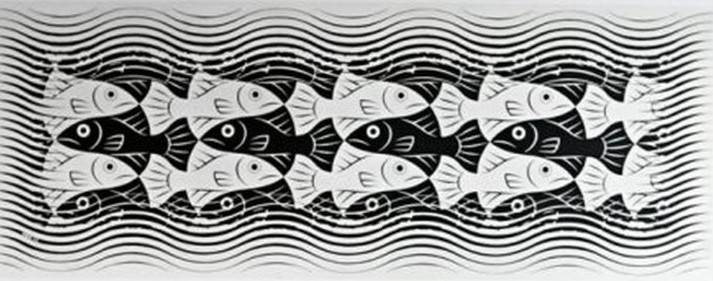Do you dare to play?

Playfulness may contribute to innovation and to transformational changes in organizations. On the individual level playfulness make us more creative and happier. Playing may help you to give substance to playfulness in your organization. What kind of play type are you?
Playfulness
As a playing person, homo ludens is able to shape his own future in the interaction with others.[1] People who are playing enjoy what they are doing. They feel that they have a grip on their own lives, which makes them more agile in an environment that is ambiguous and uncertain. In general, people with a playful attitude are more creative, happier and healthier.[2] Playfulness strengthens our adaptive skills and contributes to positive social relationships and greater self-awareness. Playfulness is combined with a positive and optimistic outlook and an open view of the world.[3]
Being playful is an attitude, a way you face life. People differ from others in the degree of playfulness they adopt in their way of thinking and behavior. This difference has to do with education and personality.[4] Stuart Brown describes various play forms that people use to give substance to playfulness:[5]
Being playful
The explorer is excited to discover new things. This can be done physically by visiting new places and leaving the comfort zone, mentally by reflecting on events or learning about new themes, or emotionally by being open to new feelings through meditation or art such as painting, dance, music and literature. Explorers broaden their mind, which stimulates playfulness and inspire others.
The artist takes pleasure in producing something like paintings, sculptures, dance, fashion, but also in activities such as gardening, developing new working methods, and designing houses, bridges or new products. The artist likes to show his or her creation to the world. It is about creating something that is fascinating or impressive and that touches on beauty.
The inventor wants to find a solution to an existing problem or create something new that makes life easier. The inventor plays with thoughts and materials, comes up with new combinations, makes new products, sees if something works and how something can be made better, more useful or more beautiful.
The collector takes pleasure in collecting interesting objects or experiences. Collectors often connect with like-minded people and exchange what they have discovered. They want to know how something works, they organize and find out what makes an object or experience attractive. They translate their experiences into new situations and contribute to innovations.
The active types are at their happiest when they move by walking, cycling, running, doing yoga, dancing or swimming. They want to feel their bodies and explore their limits. They often form groups to motivate each other. They are not concerned with being the best, but with the activity itself that creates new energy and allows new thoughts to flow.
The challenger enjoys competitive play and enjoys playing by challenging others and plays with the ambition to be the best. It is not necessarily about winning and losing, but about the dynamics that unfold between the players and the fun you can enjoy together.
The director enjoys inventing and performing scenes and realizing events. Directors bring others into the play, but are themselves the undisputed center of creativity and organizational strength. They show their creativity in coming up with interesting experiences and bringing people with different qualities together.
The joker plays with sense and nonsense and makes others laugh with special angles and unexpected quips. The court jester is the oldest form of the joker who could playfully contradict prevailing views. The joker invites people to look at themselves and brings up established habits, thus creating space to try something new.
The storyteller uses imagination and knows how to convert events and emotions into a story that invites you to look differently at what is going on. We find storytellers among authors of books, stage or film scripts and among creators of cartoons, films and vlogs. The storytellers create an imaginative world and know how to touch, inspire and make people think.
Playfulness
Playfulness is a common feature of the above roles. The players are intrinsically motivated and find opportunities to play everywhere. Through their activities they continue to develop, adapt and improve. With their investigative and playful attitude, they continuously learn about themselves and the world around them. They always see opportunities to take initiative and have fun.
It seems as if we are less willing to play as we get older, as if there is less room for playing when we are swallowed up by work, career, health, care for others and social obligations. Most adults see playing as something that children do, something that does not fit into the adult world. Many leaders do not play because they are burdened by responsibility and believe that leadership is a serious matter. But when we do not play and do not have fun, then at some point the question will arise whether we are still happy. A helpful question is what makes you really happy and what gives you energy. A second question that arises is how we can play more. [6]
Experiences of play theorists provide guidance on how to become homo ludens again and thus make room for fun, creativity, innovation and change.[7] A first step is to go back to the playful plays you played when you were young and the fun you had with them. Look back at what gave you energy and pleasure, what role you played and what you felt with the people you played with. This reflection helps with the question of what you can do to find back your playful self and allow it in your work and life. Then open up to humor and fun in the things you do. It helps if you realize that you don’t always have to be serious. It is important that you show yourself as a playful player. Allow yourself the space to be playful and ignore the fear of being irresponsible and immature. Improvise with playful working methods, try things out and see what the effects are. Find out for yourself what type of player you are, find others who encourage you to be playful and look for opportunities to use your play qualities. Playing is exploring new situations and pushing boundaries. Remember that you do not have to be in a playful position all the time. Find out for yourself when playfulness contributes to relaxation, creativity and innovation in the interaction with others. It is precisely in this collaborative play that we can shape change and innovation in a world that is ambiguous and dynamic.[8]
[1] Huizinga, J. (1938) Homo Ludens. A study of the play-element in culture. Edition 2014. Eastfort, CT: Matino Fine Books.
[2] Hendricks, T.S. (2014) Play as self-realization. Towards a general theory of play. American Journal of Play, 6, (2), 190-213.
[3] Lieberman, J.N. (1977) Playfulness: its relationship to imagination and creativity. New York: Academic Press.
[4] Bateson, P. & P. Martin (2013) Play, Playfulness, creativity and innovation. Cambridge: Cambridge University Press.
[5] Brown, S. (2009). Play: how it shapes the brain, opens imagination and invigorates the soul. New York: Penguin Group.
[6] Sicart, M. (2013) Play matters. Cambridge, MA: MIT press.
[7] DeKoven, B.L. (2014) A playful path. Pittsburg, PA: Carnegie Mellon University – ETC Press.
[8] Boonstra, J.J. (2018) Change as collaborative play. A positive view on changing and innovating organizations. Amsterdam: Boom | Management Impact.
Read more
What makes a consultant?

What makes a management consultant influential? Is it expertise, presence, power, network, process capabilities? Is it combining theory and practice, or continuous improvement through reflection on reflection in action?
Recent research about the influence of management consultants counts me as one of the most influential management consultants in the Netherlands. The research is based on an inquiry among colleagues in consulting. In the top 5 most influential management consultants I am in the company of wonderful colleagues. Two of them are doctorates I supervised. Two others are fellow professors with whom I have published regularly. We all combine academic research and consulting. This combination helps us to develop new approaches in organization change, support others, share knowledge and experiences, and reflect on our own profession. It seems valuable and useful to combine theory and practice. There is nothing so theoretical as good practice and there is nothing so practical as good theory and methodology.
Top 5 most influential consultants in the Netherlands
| 2017 | 2005 |
|
|
In 2005 I was the youngest consultant in the list of influential consultants. Now, 12 years later the two earlier colleagues in the top 5 are older and two new ones are bit younger then me. It seems that influences comes with years of experience.
What makes a consultant?
Consultants encourage people in organizations in strategy development, aligning business processes, improvement of collaboration, innovation and sustainable change. They support managers to survive crisis situation, improve customer value and qualify for the future. Influential consultants have impact on the future of an organization and the contribution of organizations in society. It is an interesting question what makes a consultant influential.
Mindsets to become an influential consultant
Influential consultants have a worldly mindset and are conscious of developments in their environment. A strategic mindset helps to realize that the organization is a collective entity that achieves common purpose and qualify for the future. From a cultural mindset they are able to understand what is going on in the undercurrent and sense what people are concerned about. Based on a dynamic mindset they show the way by considering a meaningful combination of change strategies. Successful consultants build vital coalitions. This political mindset is connected with a collaborative mindset in order to realize change by bringing people together and organize teamwork to make renewal possible. With an action mindset they guide people in changing their organization. A reflective mindset supports them to be aware of themselves and others around them. This helps them to create meaning in the change process and add value to the purpose of the organization for customers and society.
Worldly mindset
Influential consultants have a worldly mindset that contributes to a deep understanding of the fundamental values in our society. They are conscious of their environment and willing to get into worlds beyond their own. Through sensitivity to what is happening in the world around them they see new possibilities. As a person they are curious, explorative and have broad interests. They are capable of seeing connections between varying developments and understand what an incidental disruption to a work system is and what symptoms of fundamental change are. Based on their worldly view, they are able to play a guiding role in strategic and cultural changes within organizations.
Political mindset
Strategic and cultural change comes down to forming vital coalitions with people who dare to change. Consultants in organizational change have an overview of the interests and power positions of the players on the internal and external playing field. They are capable to form a coalition of people inside and outside the organization who support the change and want to give shape to it. People in a vital coalition come from different backgrounds and have different areas of expertise. They value each other in that difference because they complement each other. Consultants are critical, committed people with their heart in society and business and with political capabilities to influence other people.
Strategic mindset
Influential consultants understand what the organization stands by and what it goes for, and they know what affects managers and co-workers. People with a strategic mindset are able to balance on the edges between the organization and the various worlds that surround it. They are explicit about what they believe is important and valuable. Consultants in strategic and cultural change name events, share interpretations and invite others to share their vision. Through this they create space for dialogue and give meaning in that. In these interactions, they contribute to the culture of organizations together with members of the organization and customers. They encourage others to tell stories and inspire other people through that.
Cultural mindset
Consultants are sensitive to the values of the organization and of the social and emotional motives and needs of people. They are socially conscious and aware of the values and standards of a social system they are part of. The cultural mindset goes truly inside the essential meanings of structures, processes and systems in the upstream. People with a cultural mindset listen to others and have the capability of trusting others and building trust. They are inspiring and they know how they have to operate administratively to solve conflicts and realize cultural changes. This enables them to connect the emotions and ambitions of others and they are able to direct the energy of the people in the organization to the future.
Dynamic mindset
Change has no meaning without continuity. Change leaders and consultants are faced with the task of meticulously developing a change approach based on a combination of change strategies and appropriate interventions to contribute to this continuity. They have a broad perspective on change strategies and make considerable choices in choosing and combining strategies for change. Change, to be successful, cannot follow some mechanistic schedule of steps, therefor people in change with a dynamic mindset deliberately pay attention to specific issues and events and make a choice about the change approach that is needed to bring about strategic and cultural change. In crisis situations, they step forward to identify the situation and tackle it, with the use of a combination of power and planned change strategies. In prosperous times, they are more likely to choose a gradual change and a continuous process of organizational development.
Collaborative mindset
Strategic and cultural organizational change is a collaborative effort of organizational members. Consultants collaborate with change leaders and use their influence to form coalitions of internal and external supporters who help give shape to the change. They actively involve other members of the organization and external interested parties in the articulation of a meaningful, attractive and feasible vision of the future. People with a collaborative mindset bring out the positive energy that exists naturally within people. Trust and space to experiment motivate others to get to work on a new vision in their own working environment and invite people to join in and experiment with renewal. Consultants with a collaborative mindset build networks, connect people, stay optimistic, show progress and make successes visible.
Action mindset
Changing organizations is an active and continuous process in which people in the organization change the way they work and live together. Influential consultants are able to mobilize energy around those things that need changing. Through their actions the way people work together changes, as do their interactions with customers. Consultants with an action mindset are sensitive aware of what the organizational members are capable in realizing changes, and thereby helping to set and maintain direction coaxing everyone along. Consultants who participate in a change often have an ambition that guides their actions and motivate them apply interventions to realize changes and to experiment actively with new ways of working. The action mindset pulls everything together through the process of change.
Reflective mindset
Influential consultants know themselves with their strong and weak characteristics. They know who they are and they know their own motives. There can be no collaboration in change without social and self-awareness. Curiosity helps to discover unwritten rules of the game and the underlying dynamics that guide behavior. A reflective and open mind is needed to understand the assumptions that are taken for granted. Meaningful consultants are accessible and can be approached, organize honest feedback and are not afraid to make emotions discussable. They are capable in self-reflection and have a learning attitude. They reflect thoughtfully on their experiences in the change process and involve others in a learning process to engage them in professional and organizational development.
Competences for effective consulting
Influential consultants have expertise and experience based on earlier practices and reflection on these practices. It is remarkable that the top 5 of influential consultants combine consulting with professional reflection, academic research and methodology development. They all publish about their experiences and contribute to the development of the consulting profession. They share knowledge and experience and invite others to do so.
Expertise, process consulting and intervening
Influential consultants have a broad field of expertise based on theory and practice. Next to expertise they are capable process consultants. The have a comprehensive view of change strategies and a wide range of intervention methodologies they are able to choose from. Related to the eight mindsets they have basic competences, which are essential in professional consulting[1].
Competences in consulting |
|
| Approach specific competences | Intervention-specific competences |
|
Expert approach
Process approach |
Strategy and processes between people
Structure, business processes and HRM
Governance and control
Training, development and learning |
|
Basic competences Showing resilience: Analyzing skills: Considering: Facilitating: Influencing: Confidence:
|
|
The top 5 influential consultants in the Netherlands combine expertise in specific areas with process consulting. The balance between these two approaches is depending on the issues they are working on and the people they are working with. They all have a broad perspective in fields of functional management and expertise in several business sectors. Over the years they have developed an intensive network, but most important perhaps: they are approachable and willing to show vulnerability because being an influential consultants does not mean that you have solutions for all issues people and business are confronted with.
[1] Based on a research of my colleagues Léon de Caluwé and Elsbeth Reitsma, both in the top 5 of influential consultants:
Competencies of Management Consultants. A research study of senior management counsultants. In: A.F Buono & D.W. Jamieson (Eds.). Consultation for organizational change. Charlotte, NC: Information Age Publishing, 2010, p. 15-40







